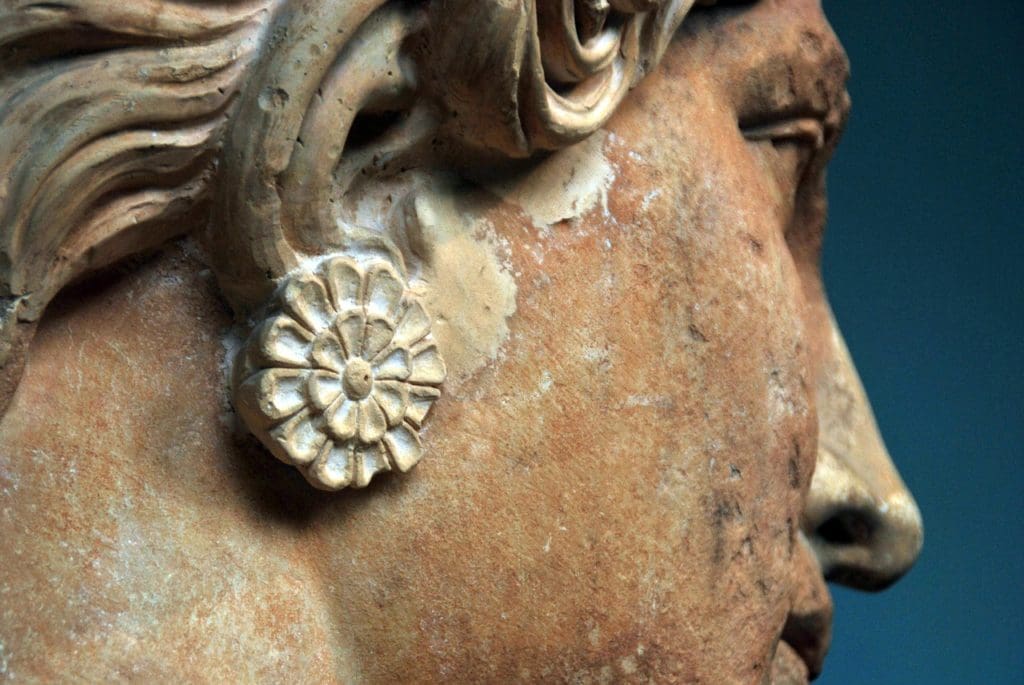
The country of Greece showcases a landscape ranging from cool, wet mountains to sun-drenched islands surrounded by impossibly blue water, making it one of the most popular vacation spots in the world. But striking scenery isn’t its only asset. Ancient Greece had a profound impact on the Western world, giving birth to the concepts of democracy and philosophy, the Olympics, and drama. UNESCO recognizes this ‘human creative genius’ by designating a total of 18 World Heritage sites in Greece. Each of these treasures has outstanding significance but if you can’t visit them all, these five should not be missed.
The Acropolis in Athens
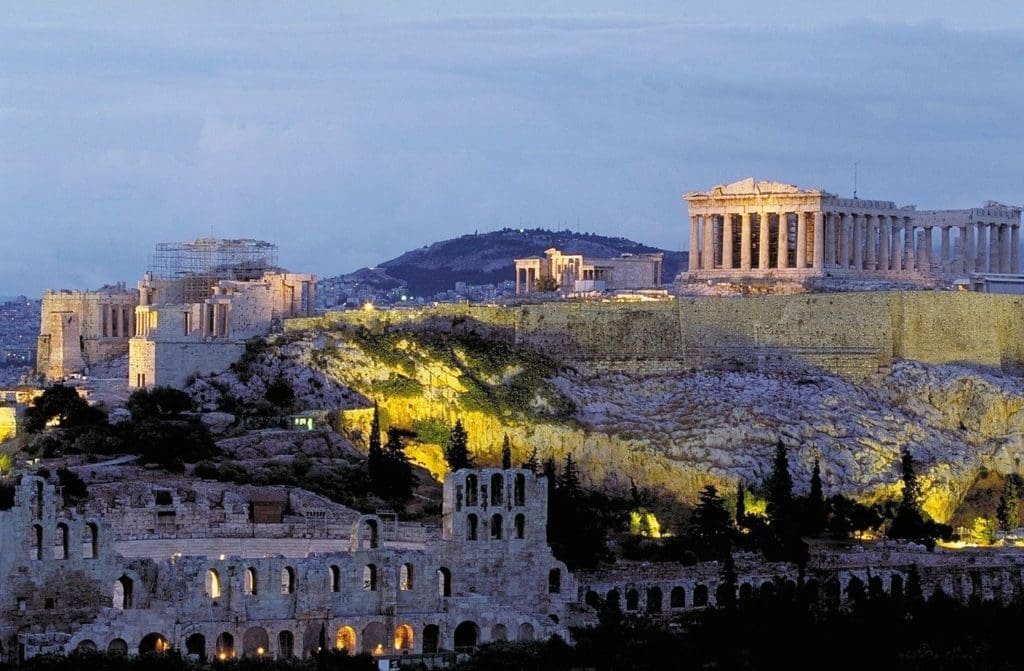
This striking complex sits atop a rocky and steep hill surrounded by fortification walls begun in the 13th century BC. In the mid-6th century to 5th century BC under the leadership of the statesman Perikles, exceptional architects and sculptors built many monuments. Not only did the unique structures influence Neo-Classical art and architecture throughout the world, but these masterpieces were also where the ideas of Democracy, Philosophy, Theatre, and Freedom of Speech were first formed. UNESCO inscribes this World Heritage site in Greece as “a precious part of the cultural heritage of humanity.”
The Archaeological Site of Delphi
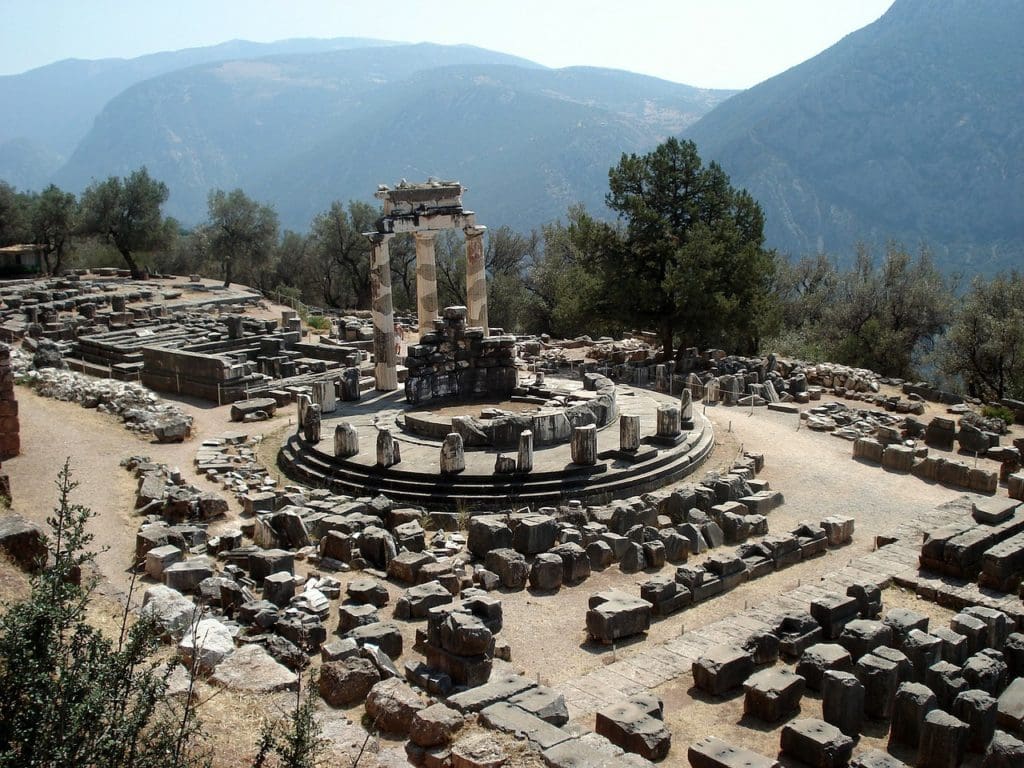
To the ancient Greeks, Delphi was the center of the world or omphalos. Nestled harmoniously between the towering Phaidriades (Shining) Rocks, Delphi was a religious sanctuary dedicated to Apollo, the Olympian god of light, knowledge, and harmony. In the 6th century BC, many pilgrims traveled to Delphi to consult the famous priestess Pythia, Oracle of Delphi on the future. There is no longer an oracle there to prophesy your questions of love, health, and politics, but you can still learn much about the ancient world when you visit.
Olympia Archaeological Site
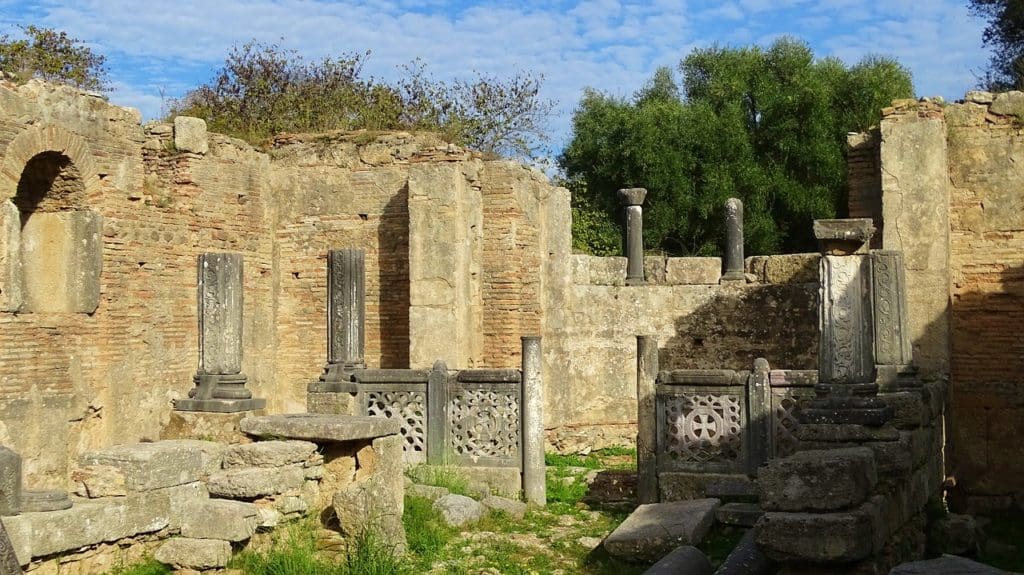
Although evidence of human settlement dates to prehistoric times (4000 to 1100 BC), the zenith of Olympia occurred from the 10th century BC to the 4th century AD when the Altis sanctuary honored the god Zeus. During that time, the celebration of the Olympic Games every four years from 776 BC to 393 AD represented peaceful competition among athletes from all the Greek cities of the Mediterranean basin. As one of the most visited World Heritage sites in Greece, Olympia symbolizes the ancient Greek ideals of peace, justice, and progress.
Meteora
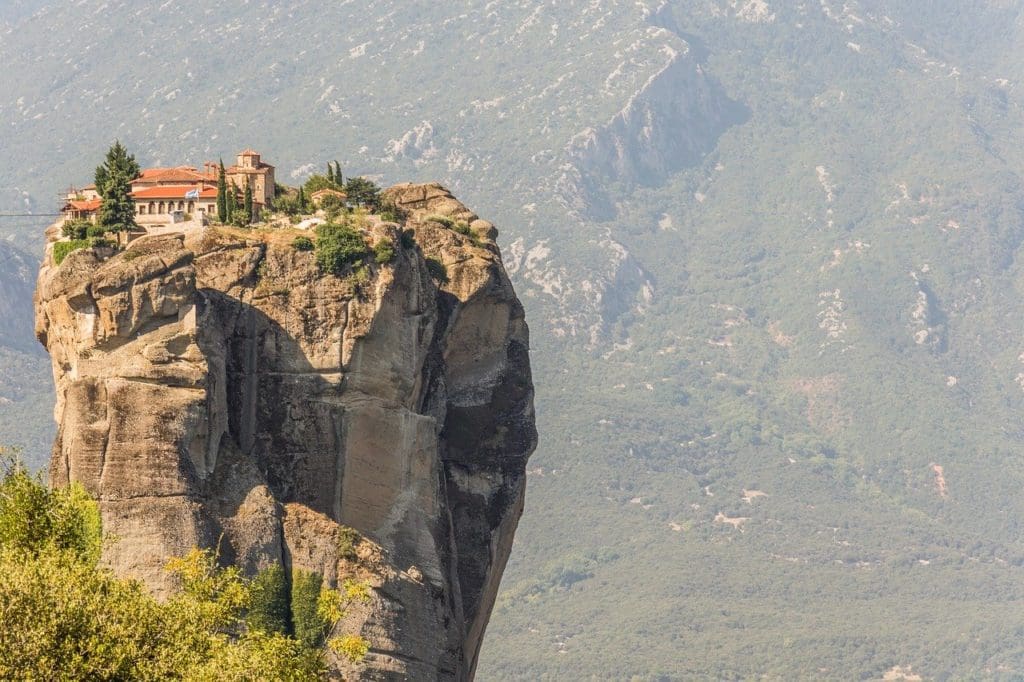
About four hours by train north of Athens in the Pindus Mountains, twenty-four monasteries perch on nearly vertical sandstone pillars. Monks lived on the ‘columns of the sky’ from the 11th century onward; however, the walls beautifully display their 16th-century frescoes as examples of post-Byzantine art. Today only a few monks live in six of the monasteries, offering visitors who don’t mind heights a peek into monastic life.
Medieval City of Rhodes
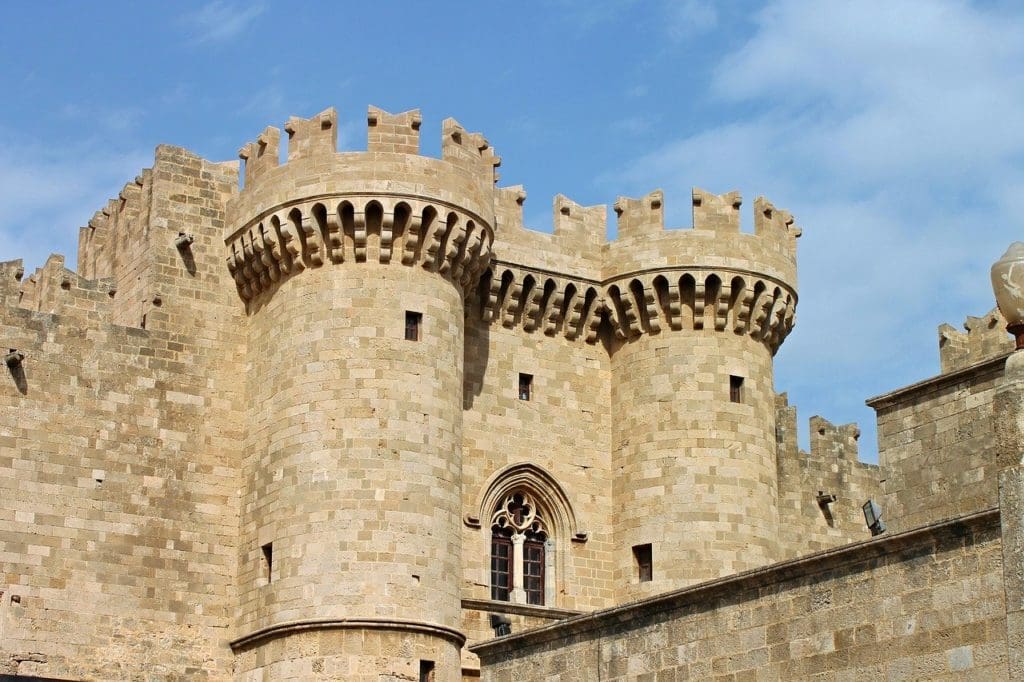
Located on an island in the Aegean Sea, this World Heritage site is recognized for its architectural character and the meeting of two worlds. The Crusading Knights of Saint John of Jerusalem, or the Hospitallers, occupied Rhodes from 1309 to 1522. They fortified the Byzantine town and developed Gothic urbanism with a palace, hospital, and Street of Knights. The walled city withstood major sieges until it was conquered by the Ottoman Sultan Suleiman the Magnificent. The Ottomans then adapted the Gothic and Byzantine buildings to their lifestyle. They converted churches to mosques, added public baths, and enclosed wooden balconies over the narrow streets. The result is one of the best-preserved medieval towns in Europe with a unique combination of Western and oriental architecture.
There are thirteen additional World Heritage sites in Greece that exhibit the remarkable accomplishments of humanity. We highly recommend that you add one or more of these significant places to your vacation in Greece. Just ask your Covington vacation advisor for help planning your trip.






Leave a Reply